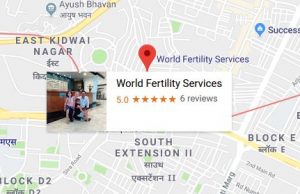7 Tips that helps to prefer an IVF Clinic Abroad
After the very growth in the medical science, it is clearly seen that a substantial number of infertility patients are travelling abroad for fertility treatment. As their motivations may consist of modern treatment and greater availability of donors, many patients have positive experiences of receiving treatment abroad; even though, this is not always the case.
What to keep in mind about before going forward
According to the various surveys, many patients who do travel overseas for treatment are the very content with the standard of care and excellence of treatment they get. On the other hand, if you are bearing in mind travelling abroad for treatment, you are given an advice to achieve thorough research. Also, we advise that you only do select a clinic that has a proven record on quality and standards. We also suggest you to take a number of issues into consideration, such as
1. Standards and safety abroad:
The licensing and regulation to the fertility clinics makes complete jurisdiction overseas. The level of legal or regulatory standards of clinics in overseas countries varies greatly and not all countries will have organizations. Some places have no specific laws or regulations relating to assisted reproductive services.
2. Success rates:
According to the various surveys, some patients have mentioned to the high success rates as one of their reasons for travelling abroad for treatment. As there are a number of different ways in which success rates can be estimated and presented, the overseas clinic may do it in the same way. Also, it is important to bear in mind that such differences to make sure that comparisons are not misleading.
3. Donor issues:
If you are thinking to employ the donated sperm, eggs or embryos, you are recommended to believe:
-
The legal issues nearby to the parental responsibility:
If treatment is given by a licensed clinic in the foreign countries, the donor does not have any legal responsibility to children born as a result of the donation. So, seek your own legal advice to elucidate your position.
-
Whether the form of donation is available in the destination country:
In some countries, treatment taking in sperm donation is let but treatment involving egg or embryo donation is not. You might also want to observe whether there are any limits on the number of families that could be generated per sperm donor.
-
Whether or not donation is unidentified:
In the foreign countries, where donation is not unidentified, the donor-conceived children will be able to trace donors and donor-conceived siblings once they arrive at the age of 18. This may not be the case if you are seeking to the treatment abroad.
-
Donor information:
Even in countries where donation is not anonymous, you should realize if the clinic is able to offer you with any information about the donor. Also, their systems of recording donor information may not be the same as in the foreign countries and you should be aware that if you receive donor treatment overseas, this information cannot be started. Yes, this has implications to accessing donor and sibling information.
4. Multiple Birth rates:
A multiple pregnancy is the single greatest health risk connected with fertility treatment. It bears risks to both mother and baby, such as the risk of prematurity and below-normal birth weight. In IVF treatment, these risks could be minimized by keeping away from multiple embryo transfer and, where appropriate, deciding on single embryo transfer. In the some foreign countries, all clinics are required to have multiple births policies in place to avoid any unnecessary risks. Also, you are advised to talk about the risks of a multiple pregnancy and observe whether they have any policies in place to help in minimizing such risk.
5. Counseling and support:
In the foreign countries, all clinics offer counseling prior to treatment entailing to the donor gametes. This may not be put forward by a clinic abroad. It is vital to comprehend that if you prefer to travel abroad for treatment, there may not be the support you would expect if you are being healed there. Any problems/questions will be handled well by phone, fax or email.
After discussing topics given above, a list of patient organizations in other countries could be found on the Infertility Network at the foreign countries. As the Foreign and Commonwealth Office (FCO) has launched guidance on surrogacy overseas to offer prospective parents information about the process to inform them of the sort of issues they may face when embarking on a surrogacy arrangement in a foreign country, the guidance urges prospective parents to make sure they are fully aware of the facts before starting what can be a long process.
Questions you could ask the overseas clinic
You are counseled to inquire:
a) Whether fertility treatment is controlled in their country and are there any rules clinics have to follow?
b) What is the clinic’s record of values and safety?
c) Does the laboratory have to follow set procedures?
d) How are patient records kept to make sure confidentiality?
e) Could language barriers reason any problems at the clinic?
f) At what stages of treatment would you be required to travel to the overseas clinic?
g) What are the clinic’s success rates, and how they are planned?
h) Does the clinic have a particular specialism and is it related to your treatment needs or to the clinic’s overall success rates?
i) What is the clinic’s multiple birth rates and do they have policies in place to minimise risks?
j) Does the clinic store embryos, and for how long?
k) What would happen to embryos in the event that one party in a couple changes their mind about continuing with treatment?








 WhatsApp us
WhatsApp us